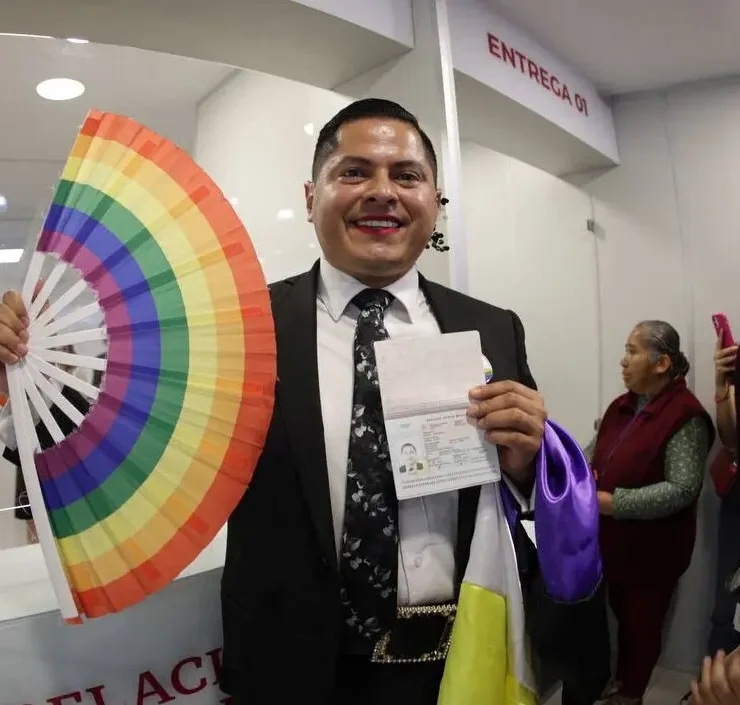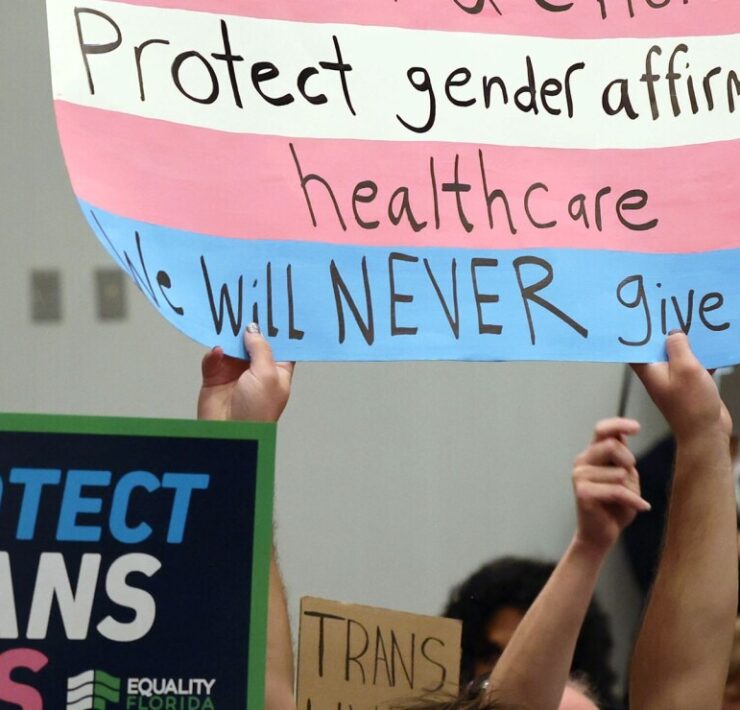OFM Breaking News: November Issue Edition

Ray has with OUT FRONT Magazine since February of 2020.…
Colorado Elections 2022: Who’s Who
United States Senate
Joe O’Dea (R)
Republican Joe O’Dea is one of the few in his party to support Roe v. Wade as it was originally written. However, O’Dea is against “elective late-term abortion, and taxpayer funding for abortion” according to his website. Other issues important to O’Dea include curbing the national debt and inflation and a strong support for law enforcement and first responders.
“Here at home, we are losing our cities to homelessness and crime. The political elite refuse to stand with the police and first responders. Denver is a disaster—It’s a true tragedy. And if we don’t get serious about protecting our streets and our people, our suburbs will be overrun by crime and homelessness too,” reads a quote from O’Dea’s campaign website.
Michael Bennet (D)
Bennet’s voting history reflects what one would expect of a modern democratic party member, with support for affordable healthcare and efforts to thwart the effects of climate change. He is also against the trans military ban and has condemned the Supreme Court’s ruling to overturn Roe V. Wade.
“Today, a radical majority of the Supreme Court demolished 50 years of legal precedent. This activist ruling strips women of their individual liberty to make intensely personal decisions about their bodies and futures and eviscerates their Constitutionally protected rights to freedom and equality,” Bennet says in a public statement.
Colorado Attorney General
John Kellner (R)
Kellner is touted as a candidate who will be tough on crime, including drug use and car thefts. He made clear during a debate in August that though he opposes abortion and agrees with the Supreme Court decision to overturn Roe v. Wade, he would defend Colorado state laws, including abortion protections. Kellner also said during that same debate that although law enforcement officers make mistakes, he supports them.
“Colorado’s law enforcement put their lives on the line to protect us every day, and they deserve to know we support them. We should be funding and supporting the best possible training for our police rather than demoralizing and delegitimizing them,” reads Kellner’s website.
Phil Weiser (D)
Weiser, the democratic incumbent, vehemently defends Colorado’s abortion laws, reflecting on his time training under the late Ruth Bader Ginsberg as pivotal to his commitment to reproductive healthcare access. To address the issue of police brutality and excessive force, Weiser has suggested “emotional intelligence and ethics” training for Colorado law enforcement. Other issues important to the current attorney general include gun violence, hate crimes, and fentanyl overdoses.
“Overdose deaths have risen nearly every year for the last quarter century. This is a devastating trend driven by a number of dynamics. One crucial contributor to this crisis is the irresponsible actions of pharmaceutical companies that put profits over patients—companies that we have held accountable for their illegal conduct,” Weiser says of Colorado’s opioid epidemic.
Colorado Governor
Heidi Ganahl (R)
Ganahl has focused her efforts on four different issues: family, crime, cost of living, and environment. She opposed abortions except for in extreme cases such as incest, rape, and when the health of either the mother or child is in danger. She also opposed Biden’s student loan forgiveness and believes hardworking Coloradans should not incur the debt of others. Ganahl is in favor of Colorado public schools’ use of School Resource Officers and/or enhanced security measures, as well as the criminalization of possession of fentanyl in any amount.
“We can stop rampant homelessness by ending public drug use, prosecuting criminal behavior, using outcome-based funding models, and cleaning up our streets and parks. Let’s address addiction with compassion for all involved, including more access to care but with consequences for criminal behavior,” her campaign website states.
Jared Polis (D)
Current Colorado Governor Jared Polis aims to bring down the cost of living for Coloradans through free, universal preschool and caps on life saving medications such as insulin. Polis plans to continue to fight crime by investing $166 million to support local law enforcement and expand treatment services, while also giving law enforcement officers the necessary tools to pursue vehicle thieves by creating additional penalties for stealing catalytic converters and cracking down on the secondary market. In April of 2022, Polis codified Coloradans’ right to abortion access with the Reproductive Health Equity Act.
“Colorado stands resolute. Birth control, abortion, and reproductive health care are legal here, and people have the freedom to make decisions about their own bodies,” Polis Tweeted earlier this year.
White Supremacy in Colorado: Both Past and Present
This September, the names of hundreds of U.S. law enforcement officers, elected officials, and military members were leaked, as membership rolls for the far-right extremist group “Oath Keepers” became public. The anti-government, white supremacist group has been accused of playing a key role in the January 6 insurrection at the U.S. Capitol.
The Anti-Defamation League (ADL) identified more than 370 people it believes are both members of the Oath Keeps and currently work in law enforcement. Another 100 people on the membership list are active members of the military, and more than 80 people on the list were either running or serving as elected officials. The ADL identified 14 law enforcement officers, two elected officials, and seven military members with Colorado addresses.
The membership list included not only active members but anyone who had at one point paid membership dues or signed up for membership within the group.
“Even for those who claimed to have left the organization when it began to employ more aggressive tactics in 2014, it is important to remember that the Oath Keepers have espoused extremism since their founding, and this fact was not enough to deter these individuals from signing up,” the ADL report reads.
The Oath Keepers were founded in 2009 by Stewart Rhodes and are a loosely organized, far-right group fueled by conspiracy theories and white supremacy. It asks its members to defend the U.S. Constitution “against all enemies foreign and domestic,” thus the name Oath Keeper.
Former Oath Keepers spokesman Jason Van Tatenhove raised concerns about the group’s threat to American democracy during his testimony regarding the January 6 insurrection.
“We need to quit mincing words and just talk about truths,” Tatenhove says, “and what it was going to be was an armed revolution.”
Recent FBI findings report that Colorado hate crimes have reached their highest level in over 30 years, and while this rise follows a national trend, Colorado saw an increase that far outpaced the rest of the country. According to the Southern Law Center’s Hate Map, Colorado is home to more than 18 hate groups, 10 of which are either antisemitic or white nationalist.
Persistent myths about Colorado and the Midwest being a “naturally” white region, or lacking the history of violence and slavery of that in the South, encourages white Midwesterners to see themselves as free from racism.
In reality, the lack of racial diversity is often a result of the historic maintenance of white spaces. One such practice used throughout much of the Midwest was “sundown towns,” in which Black Americans were allowed to provide labor throughout the day but would be expected to leave after sundown. Those who didn’t would face violent assault at the hands of white Americans. Colorado once had at least 11 sundown towns, including Colorado Springs and Longmont.
In the early 1920s, members of Colorado’s Ku Klux Klan (KKK) held political and bureaucratic offices, including congressional seats and judgeships, as well as Denver’s Mayor’s office and the Governor’s mansion. By 1925, more than 35,000 Colorado men belonged to the notorious white supremacist organization, and Colorado’s Klan trailed only Indiana’s in terms of the extent of its political influence.
In the book Hooded Empire: The Ku Klux Klan in Colorado, author Robert Alan Goldberg describes how Colorado’s Klan used wedge-issue campaigns focused on high crime rates from Prohibition to turn fear and anxiety into membership, just as hate groups today use voter fraud conspiracy theories and anti-LGBTQ sentiments to recruit members on the basis of fear.
“What was said at the KKK rallies in the 1920s is almost word-for-word what is being said today by the alt-right,” says William Wei, a University of Colorado Boulder history professor.
Understanding how the KKK rose to power in Denver, and the group’s continued legacy, is pivotal to combating white supremacist groups today. Though the presence of the KKK is on the decline in Colorado, other groups are popping up to fill the void, and their political reach should be as alarming to community members as that of the Klan. Only when we confront the violent history of racism in our own communities can we truly be armed to fight those same troubling sentiments still present today.
What's Your Reaction?
Ray has with OUT FRONT Magazine since February of 2020. He has written over 300 articles as OFM's Breaking News Reporter, and also serves as our Associate Editor. He is a recent graduate from MSU Denver and identifies as a trans man.










